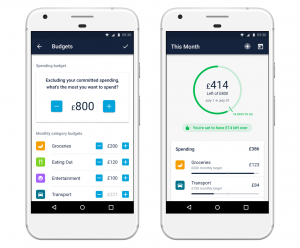by Rebekah Eliis, MSc Urban Design and International Planning
I am a student from the UK so my understanding of finances while studying at the University will differ from an international student’s experience. As well as this, every student will have a different experience with funding whilst studying at the University as finances are personal and unique to the individual.
You can get funding for postgraduate study through loans, studentships, bursaries, and grants, as well as this, if you are employed the company may help you fund your degree. I am funding my tuition fees via student finance, helping me cover the costs of studying at the University, and you don’t start repaying the loan until you earn over a certain amount. I found that there is less funding available for a master’s course compared to undergraduate degree programmes. For example, I did not receive a maintenance loan from student finance to help with costs of studying and living in Manchester. So, definitely research what funding is available to you based on your own experience and background.
The University website informed me of the possible funding opportunities available via this link: https://www.manchester.ac.uk/study/masters/fees-and-funding/. I was fortunate enough to receive the ‘Faculty of Humanities/School Environment, Education and Development – Manchester Alumni Scholarship Scheme’, which meant a £3000 reduction on my master’s fees because I obtained a 1st class degree in my undergraduate course at the University of Manchester.
If you are a UK student, you have the option to study part-time which is really helpful so that you can work while studying to help fund living costs. However, I chose to do a full-time master’s degree, so the majority of my time is taken up with lectures as well as independent study. Fortunately, the University of Manchester offers part-time casual employment opportunities such as my role as a SEED ambassador as well as a dual teaching facilitator. I applied for the role of a student ambassador just before starting my postgraduate degree and was fortunate enough to be accepted! A variety of different work opportunities are available for ambassadors with no commitment so it can fit perfectly around your studies.
Similarly, as a dual teaching facilitator, my role is casual and fits to my own schedule, facilitating the interaction between students on campus and those who are connected remotely.
As for living costs for a master’s student in Manchester, it is important to budget well to ensure you have enough money for the duration of your studies. Again, this will vary from person to person but key costs to acknowledge include: accommodation, bills (e.g., mobile phone), monthly subscriptions (e.g., spotify/apple music, gym memberships, Netflix), food, transport, as well as socialising! Bank accounts such as Monzo, Revolut and Starling Bank for example offer a number of features to help you budget better, organising costs into categories and breaking down the monthly payments to help you budget! Good luck and enjoy budgeting!


